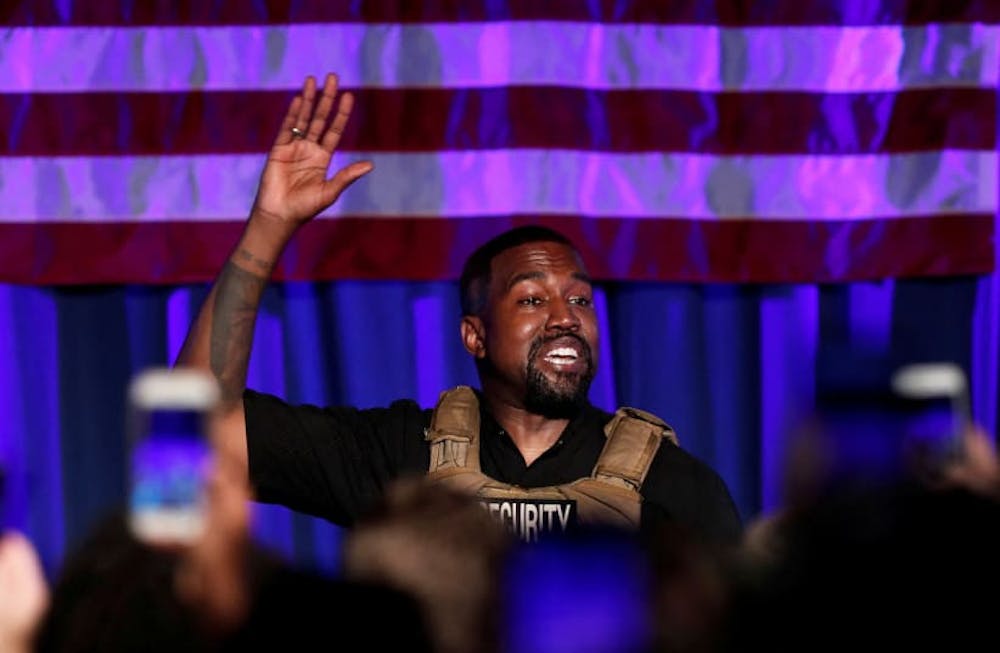December 2022. I remember getting up for another day of school. The birds were chirping, the sun wasn't shining, and I still wasn’t rich with heaping stacks of money. Everything felt dull, monotonous even, but as the day wore on, I thought, “What could surprise me now?”
Then, Kanye West happened.
If you had told me years ago that one of the most influential musicians of our time would spiral into controversy, tarnishing his legacy with antisemitic remarks and radical behavior, I probably wouldn’t have entertained the thought. But here we are. Kanye West, or “Ye” as he now prefers to be called, took center stage for all the wrong reasons in 2022 when he made a series of statements that probably violated the Geneva Convention. His statements may not be known across the world, because most I’ve asked have no idea about his actions. However, for the upcoming weeks, that was all I would hear.
Kanye has always been controversial. He’s disrupted award shows, voiced unpopular opinions, and had notorious Twitter rants. But there’s a difference between being an outspoken creative and crossing into the many bad -isms. His comments during his Infowars—a notorious far-right conspiracy platform owned by Alex Jones—appearance, where he openly praised Hitler and denied the Holocaust, stunned even his most loyal fans. For many, this was devastating. From the TikTok accounts coping with their supposed greatest of all time being a Nazi to the listeners just dipping their feet into his discography, no one was winning. It wasn’t funny, it was sad.
A fall from…grace?
Kanye's music and fashion innovations have been culturally seismic. Albums like Graduation and My Beautiful Dark Twisted Fantasy are hailed as sonic masterpieces. But when someone with such immense power and a global platform uses it to spread harmful rhetoric, the lines blur between art and the artist. How do we separate the two when the person behind the art is actively causing harm?
2022 marked the year Kanye's fall from grace became public, but this descent was years in the making. It wasn't just a one-off slip; it was a series of erratic actions, from bizarre social media posts to aligning with alt-right figures and pushing conspiracies that turned many’s opinions against him. Heck, Mr. West said his psychologist was Jewish and that was why he was Mis-diagnosed…It’s a rabbit hole of hate many of his fans got shoved down their throats.
Now, I don’t mean to curb your anger or hatred toward him. Yes, Kanye apologized. But let’s talk about that. Kanye’s Instagram post in Hebrew—yes, in Hebrew—was supposed to be the olive branch that ended the controversy. But was it sincere? Did it show real accountability? Or was it designed to evade the consequences of his actions?
Many saw the apology as hollow, especially when just days later, Kanye would go on to make more contradictory and inflammatory statements. It made the once glorified rapper look indecisive, immature, and more importantly, dangerous. He wasn’t just saying outrageous things to provoke; he was aligning himself with the darkest ideologies of history.
Kanye's influence is undeniable, and this makes his descent into such radical views even more alarming. The platform he has—the reach, the followers—means that his words carry weight. He may have apologized, but his actions continue to contradict any attempt at redemption. In the end, Kanye has left us all questioning not just who he is, but who many are as consumers of his work. However, I feel as if many do not care enough to regard his hate with seriousness.
Are we able to separate the art from the artist when the artist actively harms others? At what point does “genius” no longer excuse hatred? These are the questions Kanye’s behavior forces us to ask, and as uncomfortable as they are, they’re questions worth answering. These are questions I have answers to. Do you?




